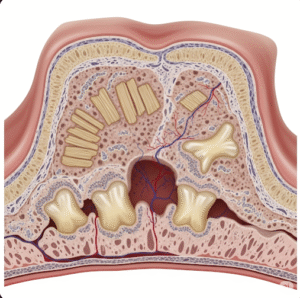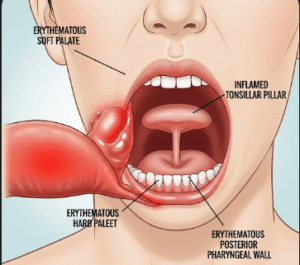Overview
Impotence, medically known as erectile dysfunction (ED), is the inability to achieve or maintain an erection sufficient for satisfactory sexual performance. This condition affects millions of men worldwide and can have a significant impact on emotional well-being, self-esteem, and intimate relationships.
In Korea, treatment for impotence is widely available, ranging from lifestyle interventions and medications to advanced therapies such as penile implants. Early recognition and treatment improve outcomes and overall quality of life.
Key Facts
- ➔ Impotence affects men of all ages, though prevalence increases with age.
- ➔ It may be caused by physical, psychological, or mixed factors.
- ➔ ED can signal underlying health conditions, such as cardiovascular disease, diabetes, or hormonal imbalances.
- ➔ Lifestyle factors like smoking, alcohol consumption, obesity, and stress can contribute to ED.
- ➔ Treatments are highly effective when tailored to the individual’s underlying cause.
What is Impotence?
Impotence is defined as the consistent inability to achieve or sustain an erection adequate for sexual activity. Erectile function involves a complex interaction of the nervous system, blood vessels, hormones, and psychological factors. Disruption in any of these systems can lead to impotence.
- ➔ Physical causes: Reduced blood flow, nerve damage, hormonal deficiencies.
- ➔ Psychological causes: Stress, anxiety, depression, or relationship issues.
- ➔ Mixed causes: Many men experience a combination of physical and psychological factors.
Understanding the type of impotence is crucial for selecting the most effective treatment.
What Symptoms Are Related To
Impotence may present alongside other symptoms or conditions, including:
- ➔ Difficulty achieving or maintaining an erection
- ➔ Reduced sexual desire or libido
- ➔ Premature or delayed ejaculation
- ➔ Difficulty achieving orgasm
- ➔ Emotional symptoms like stress, anxiety, or depression
Recognizing related symptoms helps clinicians distinguish impotence from normal variations in sexual function and identify underlying causes.
What Causes / Possible Causes
Impotence can result from a variety of physical, psychological, and lifestyle factors:
- ➔ Cardiovascular disease: Reduced blood flow due to atherosclerosis or hypertension.
- ➔ Diabetes mellitus: Nerve and blood vessel damage can impair erectile function.
- ➔ Hormonal imbalances: Low testosterone or thyroid disorders may affect sexual function.
- ➔ Neurological disorders: Multiple sclerosis, Parkinson’s disease, or spinal cord injuries.
- ➔ Medications: Certain antihypertensives, antidepressants, or chemotherapy drugs.
- ➔ Lifestyle factors: Smoking, excessive alcohol, obesity, sedentary lifestyle.
- ➔ Psychological causes: Stress, anxiety, depression, performance pressure, or relationship problems.
Identifying the root cause is essential for effective treatment, as addressing underlying conditions can often restore sexual function.
When Should I See My Doctor
Consult a doctor if you experience:
- ➔ Persistent difficulty achieving or maintaining an erection
- ➔ Changes in sexual desire or performance
- ➔ Painful erections or unusual penile symptoms
- ➔ ED accompanied by other health issues such as chest pain, shortness of breath, or diabetes
- ➔ Emotional distress, anxiety, or depression related to sexual performance
Early evaluation ensures timely treatment and may uncover underlying health conditions that require medical attention.
Care and Treatment
Treatment of impotence focuses on addressing underlying causes, improving blood flow, and enhancing sexual function:
- ➔ Lifestyle modifications: Weight management, regular exercise, smoking cessation, reduced alcohol consumption.
- ➔ Psychological support: Counseling or therapy for stress, anxiety, or relationship issues.
- ➔ Medications: Phosphodiesterase type 5 inhibitors (e.g., sildenafil, tadalafil) improve blood flow to the penis.
- ➔ Hormone therapy: Testosterone replacement for men with low testosterone levels.
- ➔ Vacuum erection devices: Non-invasive tools to improve blood flow and achieve an erection.
- ➔ Surgical interventions: Penile implants or vascular surgery in severe or refractory cases.
- ➔ Monitoring and follow-up: Regular assessment to track improvement and adjust treatments.
Combination therapies are often the most effective, especially when physical and psychological factors coexist.
Treatment Options in Korea
Korea provides state-of-the-art care for impotence, including both conventional and advanced treatments:
- ➔ Specialized urology clinics: Comprehensive evaluation for erectile dysfunction, including blood tests, hormonal panels, and penile Doppler studies.
- ➔ Pharmacotherapy: Prescription medications like PDE5 inhibitors under clinical supervision.
- ➔ Hormonal therapy: Testosterone replacement therapy for men with endocrine-related ED.
- ➔ Minimally invasive procedures: Penile injections or shockwave therapy to improve blood flow.
- ➔ Surgical options: Penile prostheses and vascular reconstruction for severe or treatment-resistant cases.
- ➔ Holistic programs: Integrating lifestyle modification, psychological counseling, and sexual rehabilitation for optimal outcomes.
Top hospitals such as Seoul National University Hospital, Asan Medical Center, and Samsung Medical Center have multidisciplinary teams for the evaluation and treatment of impotence, combining urology, endocrinology, and psychological support.
In Summary: Impotence, or erectile dysfunction, is a common but treatable condition that can affect physical, emotional, and relational health. Early recognition, lifestyle modifications, targeted medications, and advanced therapies in Korea can restore sexual function and improve quality of life.
- ➔ Key Takeaway: Impotence is often a symptom of underlying health conditions—addressing the root cause improves both sexual and overall health.
- ➔ Action Point: Seek evaluation from a qualified urologist or healthcare professional to develop an effective treatment plan.













